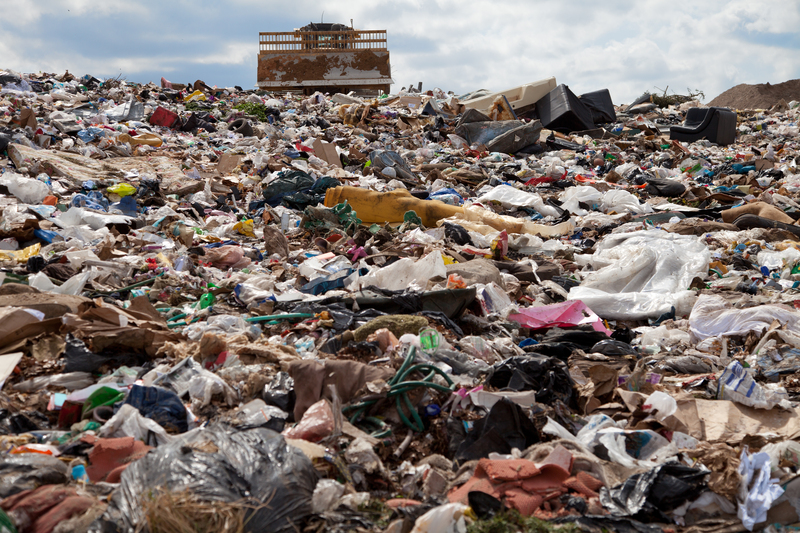Conscious Living: The Ultimate Household Waste Prevention Guide
Embracing conscious living isn't just a lifestyle--it's a responsibility towards our planet. As environmental concerns rise, more families and individuals are seeking a comprehensive household waste prevention guide to inspire transformative, sustainable habits. Reducing waste at home is one of the most impactful ways to tread lightly, preserve resources and nurture a cleaner future for all.
Why Is Conscious Living Important?
Conscious living means approaching daily decisions with mindfulness, especially when it comes to resource use and waste creation. Every item we throw away typically ends up in a landfill or incinerator, contributing directly to environmental pollution and greenhouse gas emissions. By practicing household waste prevention, we:
- Reduce our ecological footprint
- Protect water and soil quality
- Conserve energy and raw materials
- Support sustainable communities

Understanding Household Waste: What Are We Throwing Away?
To prevent waste, we first need to understand what fills our trash bins. The average household discards several categories of waste, including:
- Food scraps and organic waste
- Plastic packaging
- Paper and cardboard
- Glass bottles and jars
- Textiles and clothing
- Household hazardous waste (batteries, chemicals)
Once you know where your waste is coming from, you can start tailoring your household waste prevention plan effectively.
Effective Strategies for Reducing Household Waste
Ready to start your journey to a zero-waste lifestyle? Here are proven methods for household waste prevention that are easy to implement and highly effective:
1. Conduct a Waste Audit
Begin by assessing your own waste. For one week, observe everything your household throws out. Categorize each item to identify major sources of waste--especially items that could have been avoided, reused, or recycled.
2. Embrace the 5Rs of Waste Prevention
The classic "reduce, reuse, recycle" mantra has evolved! The 5Rs for a conscious household are:
- Refuse: Say no to unnecessary items like plastic bags, freebies, and single-use goods.
- Reduce: Only buy what you need and opt for products with minimal packaging.
- Reuse: Invest in items that can be used multiple times such as water bottles, shopping bags, and cloth napkins.
- Repurpose: Get creative! Turn glass containers into storage jars or use old t-shirts as cleaning rags.
- Recycle: As a last resort, ensure recyclables are sorted correctly to prevent even more landfill waste.
3. Shop with Waste Prevention in Mind
Shopping consciously is central to effective household waste reduction. Here's how you can make a difference:
- Bring your own bags, jars and containers for groceries and bulk buying.
- Choose products with little or no packaging, or opt for those in recyclable materials.
- Buy in bulk to avoid excess packaging and cut costs.
- Support local markets--they often use less packaging than large supermarkets.
- Avoid individually wrapped "convenience" items like snacks, produce, and beverages.
4. Reduce Food Waste at Home
Food waste makes up a significant portion of household garbage. Smart strategies include:
- Plan meals and shopping lists to buy only what you need.
- Use leftovers creatively--turn yesterday's dinner into today's lunch.
- Practice proper food storage to keep ingredients fresh longer.
- Compost organic waste like peels, coffee grounds, and eggshells.
Composting not only reduces landfill contributions, but also returns valuable nutrients to your garden soil, closing the loop in a waste-free cycle.
5. Choose High-Quality and Durable Goods
Invest in durable items that are made to last. Avoiding cheap, disposable products is a core principle of conscious household waste prevention. Before any purchase, ask yourself: How long will this item last? Can it be repaired or recycled at end of life?
6. Adopt Digital Alternatives
Switch to digital versions of newspapers, magazines, statements, and bills. By reducing reliance on paper, you cut both household clutter and landfill waste.
7. Simplify Cleaning Routines
Instead of buying multiple cleaning products in plastic bottles, make your own natural cleaners using simple ingredients like vinegar, baking soda, and lemon. Use reusable cloths instead of paper towels and disposable wipes. Not only is this eco-friendly, but it's also cost-effective!
Room-by-Room Waste Prevention Tips
The key to conscious living is addressing waste at every level. Here's a breakdown of practical advice for every part of your home:
Kitchen
- Compost food scraps
- Use glass or stainless steel storage containers instead of single-use plastics
- Choose beeswax wraps or silicone lids over plastic wrap
- Cook in bulk and freeze leftovers
- Avoid single-use coffee pods in favor of reusable filters
Bathroom
- Switch to bar soap instead of liquid soap in plastic bottles
- Use bamboo toothbrushes and refillable toothpaste tubes
- Opt for washable makeup remover pads instead of disposable cotton rounds
- Choose toilet paper made from recycled materials
Laundry
- Use concentrated or refillable laundry detergent
- Air-dry clothes when possible to extend garment life
- Wash clothes in cold water to save energy and reduce microfiber pollution
- Install a lint filter on your washing machine to catch microplastics
Living Room & Bedroom
- Decorate with plants or upcycled materials
- Buy secondhand furniture and decor
- Repair, rather than replace, items where possible
- Borrow or rent books and entertainment instead of buying new
Garage and Storage Spaces
- Organize tools and supplies to avoid duplicate purchases
- Safely dispose of hazardous materials at designated recycling centers
- Recycle or donate old electronics and appliances
- Repurpose containers and storage bins
Practical Tools and Resources for Conscious Living
- Reusable shopping bags, produce bags, and containers
- Compost bins (indoor and outdoor)
- Digital meal planning and inventory tracking apps
- Water filtration pitchers to avoid bottled water
- Swap events and community sharing networks
- Online marketplaces for selling or giving away unwanted items
These resources make it easier than ever to prevent waste in your household and lead a greener lifestyle.
Encouraging Family and Community Involvement
Conscious living flourishes with group effort. Involve the whole family by:
- Setting shared waste reduction goals (e.g., weekly compost targets or plastic-free challenges)
- Assigning roles for recycling and composting
- Educating children about environmental impacts using fun games and rewards
- Hosting zero-waste workshops or swap meets in your community
When everyone participates, household waste prevention becomes second nature.
Addressing Common Challenges in Waste Prevention
No journey is without obstacles. Conscious living sometimes clashes with convenience, cost, or lack of awareness. Here's how to overcome three common barriers:
- Lack of Access: Not every area has bulk stores or composting facilities. Get creative with what's available, advocate for change, and use online tools for upcycling and recycling.
- Time Constraints: Batch meal-prep, use simple zero-waste swaps, and automate digital bills and subscriptions.
- Eco-Guilt: Perfection isn't required! Every step matters, and slip-ups are part of the process. Celebrate progress, not perfection.
Measuring Your Progress and Celebrating Success
Track your success to stay motivated on your conscious living journey. Try these methods:
- Count trash bags or weigh waste before and after implementing changes
- Photograph your compost pile growing
- Keep a journal or chart for household recycling and reusing milestones
Acknowledging your achievements inspires continued effort and even bigger results over time.

The Ripple Effect: Inspiring Broader Change
As more people adopt conscious home waste prevention strategies, the positive impact grows exponentially. Share your tips and progress on social media, support local zero-waste businesses, and encourage friends and neighbors to join you. Every small action adds up to a significant shift for our planet.
Conclusion: Start Your Conscious Living Journey Today
Preventing household waste is an ongoing process--one built from thoughtful choices and persistent small steps. Begin your journey today with these household waste prevention tips, and watch as your actions help build a cleaner, healthier world for generations to come.
Are you ready to make conscious living a cornerstone in your home? Start with one change, share your progress, and inspire others--because sustainable living begins with you.